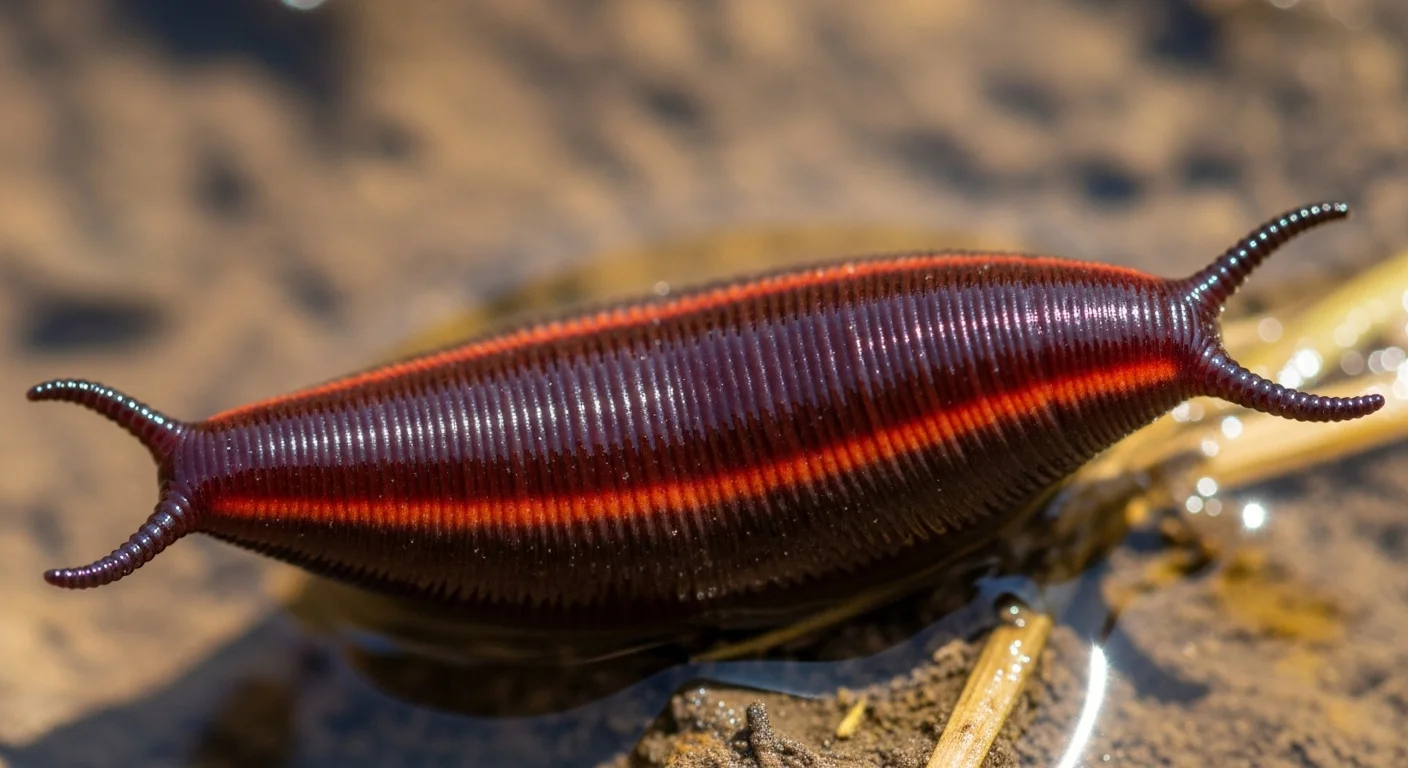Leech Surprise: Why You Might Be Coughing Up Blood After Drinking Rural Water
Coughing up blood is a terrifying experience. While there are many potential causes, a recent case highlights a surprising culprit: leeches lurking in seemingly harmless rural water sources. Imagine a seemingly healthy individual, enjoying the tranquility of the countryside, suddenly experiencing hemoptysis (coughing up blood). This is exactly what happened to a man in England, serving as a stark reminder of the potential dangers hidden in untreated water.
The Case of the Coughing Farmer
A 36-year-old shepherd and farmer was alarmed to find blood in his phlegm. Assuming it would resolve itself, he waited, but after two weeks of persistent hemoptysis, he sought medical attention at a local hospital. During questioning, the patient mentioned he had recently drunk water from a pond.
Doctors discovered blood traces on the back of his throat. While his vital signs and basic blood tests appeared normal, a deeper investigation was warranted. Under general anesthesia, doctors performed a laryngoscopy, directly examining the larynx (voice box). To their surprise, they found a dark, greenish object moving in his oropharynx (the area behind the mouth).
Extraction and Revelation
Using heated medical forceps, the medical team carefully extracted the object. It turned out to be a leech, approximately 7-8 cm long, a blood-sucking parasite. Following the removal, the patient’s hemoptysis ceased, and he was discharged the next day.
According to a cardiology fellow involved in the research, this type of case, where individuals ingest leech eggs or larvae through contaminated water and subsequently cough up blood, is more common than one might think.
A Growing Concern
While this case occurred in England, the risk is relevant globally, especially in rural areas. Individuals participating in volunteer work in rural areas or engaging in recreational activities like swimming in rivers and ponds are potentially at risk of leech bites or ingesting leech eggs/larvae. Studies have even shown the emergence of previously unseen leech species in certain reservoirs, highlighting the changing distribution of these parasites.
Leech Biology and Risks
Leeches, along with mosquitoes, fleas, bedbugs, lampreys, vampire bats, and certain bird species, are among the creatures that feed on blood. Leeches primarily inhabit freshwater environments, including slow-moving streams, rivers, and rice paddies.
Their saliva contains anesthetic, anticoagulant, and vasodilator compounds. These substances allow them to feed painlessly and efficiently, preventing the blood from clotting. Leeches, which are hermaphroditic (possessing both male and female reproductive organs), range in size from 5 to 15 cm. They can enter the body through various orifices when drinking or bathing in contaminated water, leading to internal hirudiniasis (leech infestation).
Internal Infestation: Symptoms and Complications
Once inside the body, leeches can impact the respiratory and digestive systems. Infestation in the throat can lead to hemoptysis, a foreign body sensation, difficulty swallowing, and dark stools. If a leech attaches to the larynx, it can cause a life-threatening airway obstruction. Furthermore, prolonged blood-sucking can lead to anemia.
External Leech Bites: What to Do
If a leech attaches to your skin, experts recommend waiting patiently until it finishes feeding and detaches on its own, which usually takes 20-45 minutes. Afterward, wash the area thoroughly with soap and water.
Attempting to forcibly remove a leech can leave its mouthparts embedded in the skin, potentially causing infection or inflammation. Seek medical attention from a dermatologist if you experience swelling, severe itching, pus, rash, or fever.
Awareness and Prevention
This case serves as a crucial reminder to be cautious when consuming water from untreated sources, particularly in rural areas. Water purification methods, such as boiling or using filtration systems, can help minimize the risk of ingesting leech eggs or larvae. Being aware of the potential dangers hidden within seemingly pristine water sources is essential for protecting your health.




